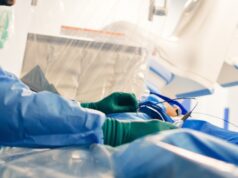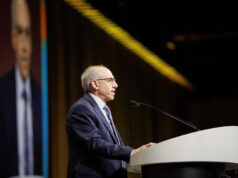 Findings from the CALORI cardiac catheterisation trial, presented at the Society for Cardiovascular Angiography & Interventions (SCAI) 2024 scientific sessions (2–4 May, Long Beach, USA), show significant improvement in patient wellbeing and satisfaction without compromising safety after implementation of a liberal non-fasting strategy prior to a cardiac catheterisation procedures.
Findings from the CALORI cardiac catheterisation trial, presented at the Society for Cardiovascular Angiography & Interventions (SCAI) 2024 scientific sessions (2–4 May, Long Beach, USA), show significant improvement in patient wellbeing and satisfaction without compromising safety after implementation of a liberal non-fasting strategy prior to a cardiac catheterisation procedures.
The risk of complications during cardiac catheterisation procedures is low, but issues such as bleeding, pain, infections, or blood clots could occur. In addition, routine pre-procedural fasting remains the standard of care, despite a lack of robust evidence to support this practice.
The CALORI trial focuses on in-patients undergoing elective or urgent cardiac catheterisation procedures. This single-center, randomised trial investigated the impact of fasting after midnight versus unrestricted oral intake prior to cardiac catheterisation.
The primary endpoint assessed pre-procedural patient satisfaction levels (scaled 0-5, 0 signifying absence of variable and 5 the most extreme form) regarding hunger, fatigue, anxiety, and nausea. Additionally, a composite well-being score, incorporating hunger and fatigue, was utilized. Secondary endpoints encompassed post-procedural satisfaction and the occurrence of peri-procedural adverse events such as emesis, aspiration, or intubation.
Among the 198 patients analysed (65% male and 42% Black), non-fasting patients showed significantly better composite pre-procedural well-being scores of 2.4 ± 2.4 compared to 6.0±2.5 for those who were withheld from fluids or solids (Nil Per Os, NPO) (p<0.001). Individual scores for hunger (0.9±1.5 vs. 3.7±1.5, p<0.001), fatigue (1.5±1.6 vs. 2.3±1.8, p<0.001), and nausea (0.1±0.5 vs. 0.5±1.2, p=0.006) were also significantly better in the non-fasting arm. Post-procedural satisfaction was significantly higher in the non-fasting group ((0.3 ± 0.7 vs. 1.0 ± 1.3, p<0.001). Time from most recent oral intake to procedure start averaged 148 minutes for the non-fasting and 970 minutes for the NPO strategy (p<0.001). Adverse events did not differ between groups.
“Just as our techniques and technology for cardiac catheterisation have evolved, so should our approach to pre-procedure management,” said Brian Mitchell, interventional cardiology fellow at Virginia Commonwealth University (Richmond, USA), and lead author of the study. “Few studies have prospectively explored this strategy in such a diverse patient population, and with such liberal non-fasting allowances, making it the most comprehensive and generalisable study on this topic to date. Given our findings, we hope that providers will limit pre-procedural fasting to those patients at high risk of aspiration or conversion to general anaesthesia.”











